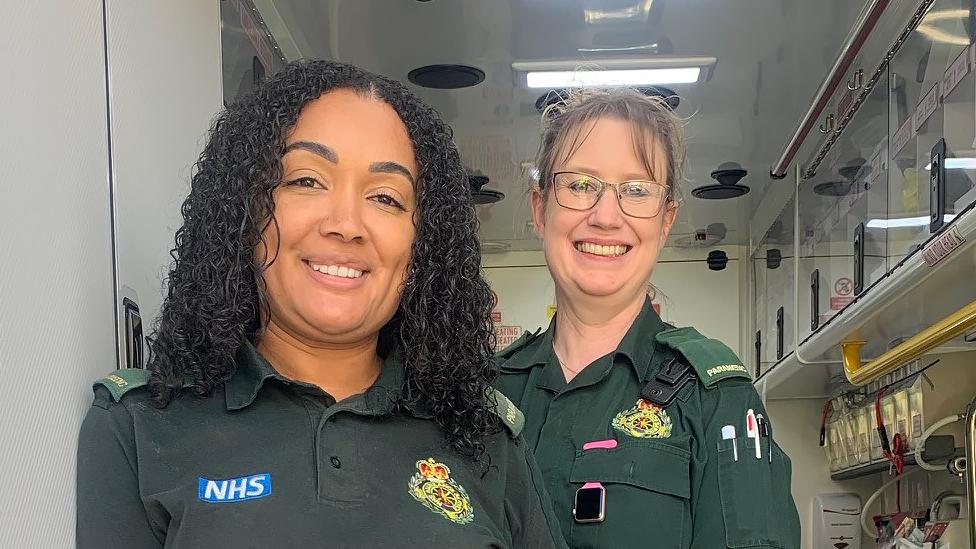Stroke concerns over Gloucestershire ambulance response times
- Published
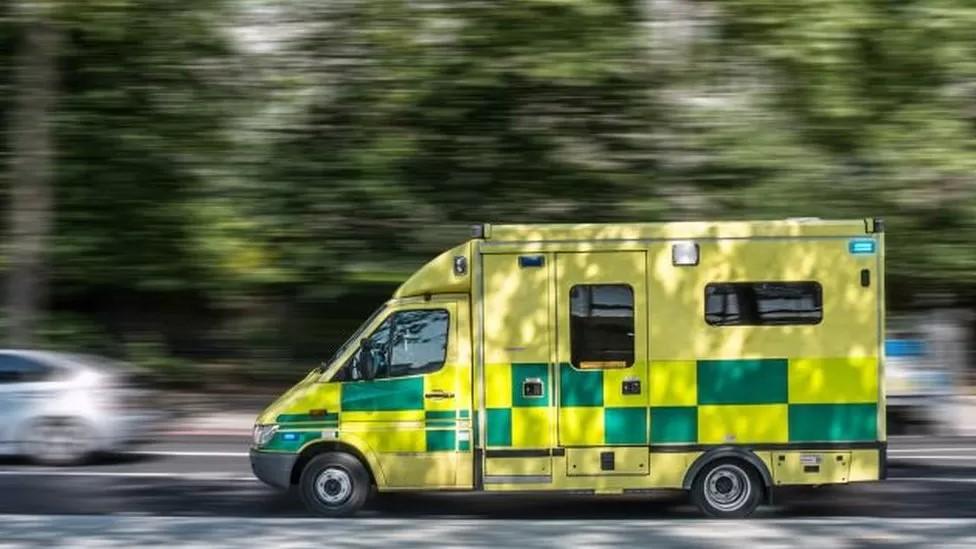
Category two calls from patients include strokes, chest pain and difficulty breathing
Concerns have been raised about ambulance response times to 999 calls from people suffering strokes, chest pain and difficulty breathing.
It took 34 minutes on average in the winter for an ambulance to respond to a category two emergency call in Gloucestershire, records show.
The target is 18 minutes, but the service was "well off" achieving that.
Health leaders have said South Western Ambulance Service NHS Foundation Trust will receive additional funding.
Delays to emergency treatment can lead to death and in the case of stroke patients permanent disability.
Councillor Paul Hodgkinson (Liberal Democrat) who has long raised concerns about ambulance delays, asked what was being done to further improve the service.
Speaking at Tuesday's health overview and scrutiny committee meeting in Gloucestershire, Mr Hodgkinson asked how NHS bosses would achieve the 18 minute target in future.
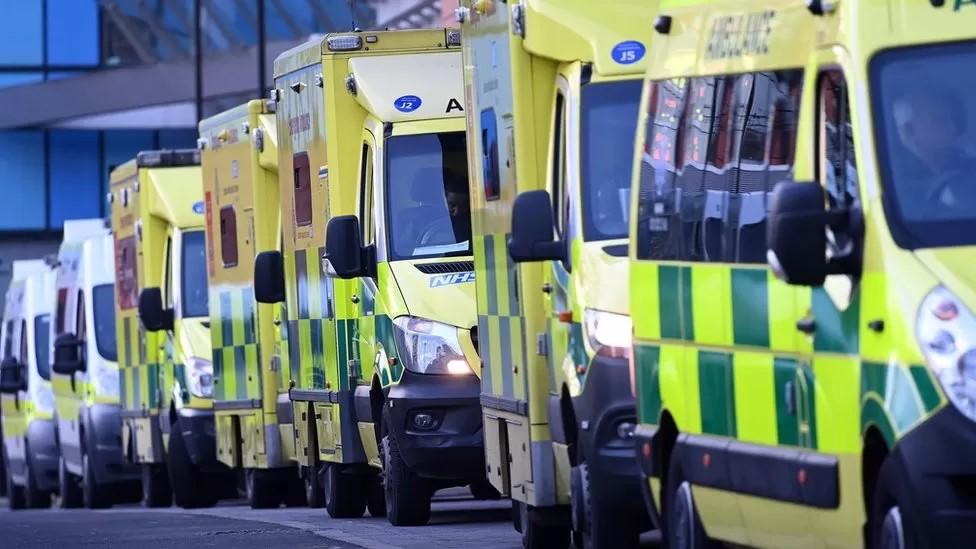
Handover delays were taking ambulances out of circulation, the meeting heard
"It has been an extremely challenging winter for everyone in the country in various ways, and in particular the NHS," he said.
"I can see you've made a lot of progress since December but the bottom line is we are still well off the target.
"Those of us in the rural areas have seen ambulance response times below target consistently for a decade."

Why speedy treatment matters for stroke patients?
A person loses two million nerve cells for every minute they do not receive medical treatment during a stroke
Nerve cells are the core components of the brain, spinal cord and central nervous system and the more that are lost, the greater the chance of slurred speech, paralysis and permanent disability
Earlier treatment results in a greater chance of recovery, a reduced likelihood of permanent disability and reduced need for extensive rehabilitation
Information from the UK Health Security Agency

A director at NHS Gloucestershire Integrated Care Board, Ellen Rule, said more funding had been allocated to the South Western Ambulance Service.
She said response times were also affected by different issues including handover delays that take ambulances out of action, the number of ambulances available, and the level of demand.
"We have work going on in every one of those fronts and have seen a huge improvement in terms of handover delay taking ambulances out of circulation.
"Additional investment is going into the ambulance service in terms of extra capacity on the roads which aims to improve the response time as well.
"Investment went in this year and more is planned next year."

Follow BBC West on Facebook, external, Twitter, external and Instagram, external. Send your story ideas to: bristol@bbc.co.uk , external
Related topics
- Published14 March 2024

- Published2 May 2023
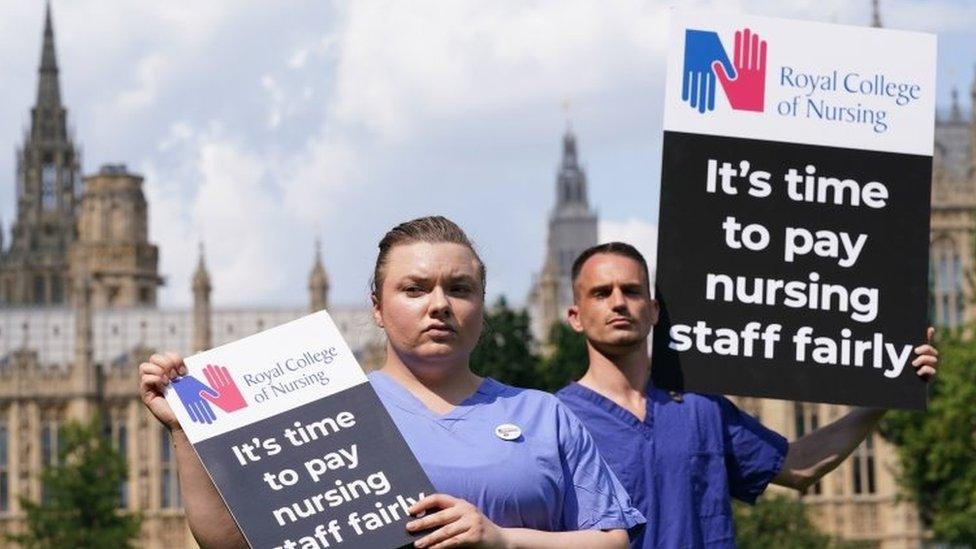
- Published1 January 2023
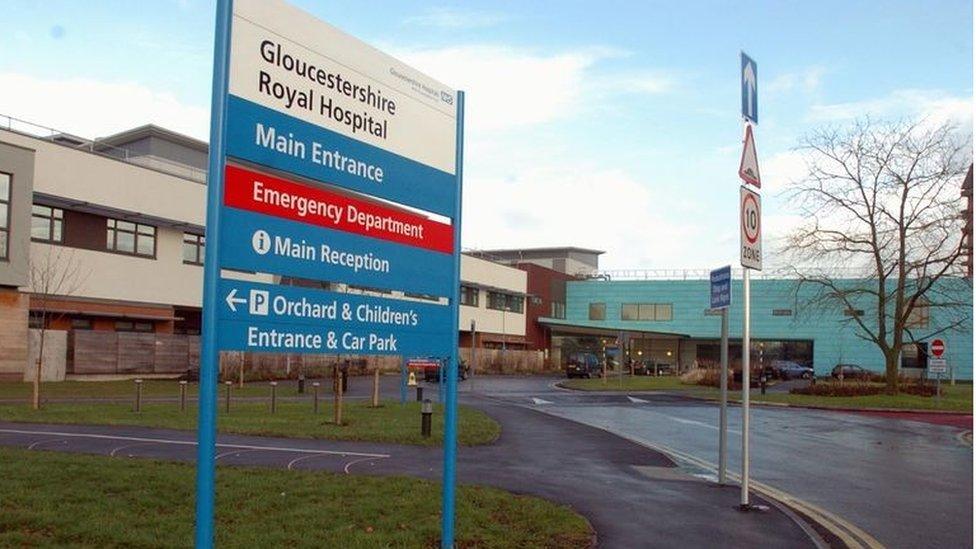
- Published30 December 2022
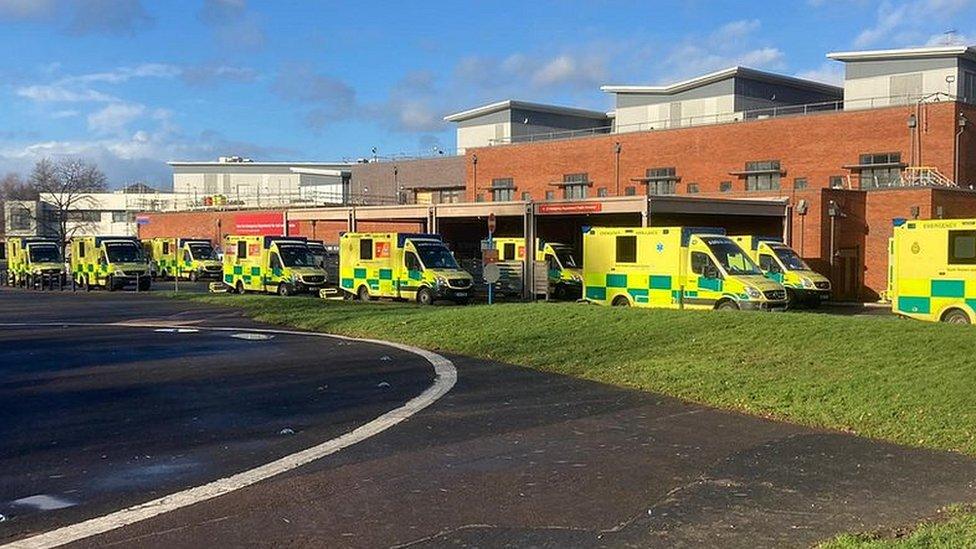
- Published17 November 2022
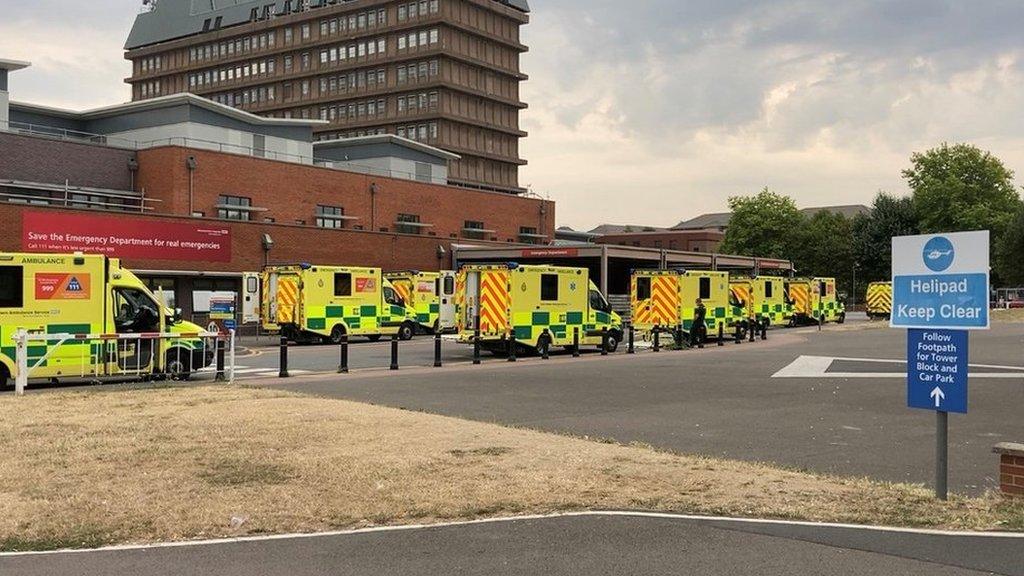
- Published19 October 2022
